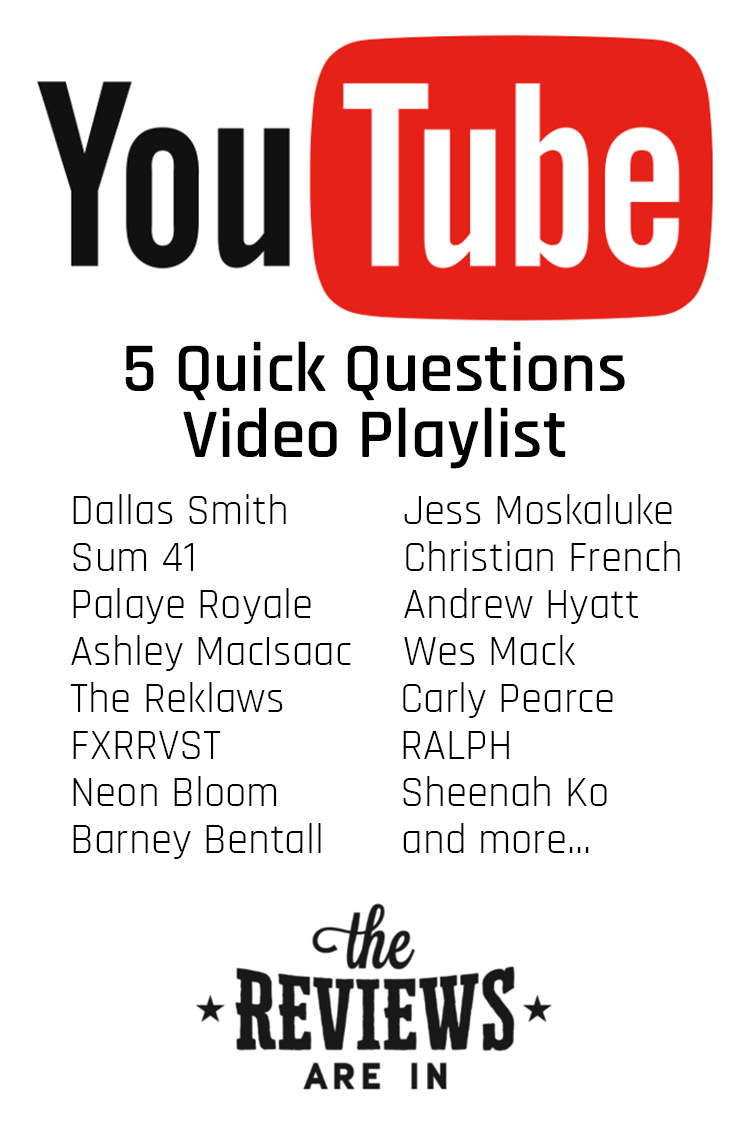Why Maren Morris Hitting Number One Matters, And Why It Shouldn’t
On Friday morning, Maren Morris excitedly announced on her social media channels that I Could Use A Love Song will become her first solo #1 hit on the Billboard Country Airplay Chart. It is a major achievement for the young country singer who has turned heads with her voice, energy, and most importantly talent since she introduced herself to country fans.
It’s a big deal for Maren Morris, it’s exciting for her fans, and it should be. Having the number one song in the country should always be seen as an achievement. However, in the case of Maren Morris, and other female country stars, this achievement and excitement comes far too infrequently and that matters too.
Almost 2 years ago exactly (Jan 19, 2016) Morris released her debut single My Church. The song launched her career, became her first top 10 single on the country airplay charts (reaching #9), and went on to win a Grammy for Solo Country Performance of the Year in 2017. Now, I understand that it takes time for new singles to chart and climb the charts to reach their highest point, including #1. But, if we use the last two years as a sample size of 104 weeks, we can see the ongoing trend, and unfortunate reality, that it really doesn’t matter how long a female country artist waits, or how good her song is, number one probably isn’t coming.
In 2016, four weeks of 52 saw solo a female artist at #1 On the Billboard Country Airplay chart. Both Carrie Underwood (Heartbeat, Church Bells) and Kelsea Ballerini (Dibs, Peter Pan) earned and celebrated those spots, as they should have. In 2017, only two weeks out of 52 saw the same result, with Lauren Alaina (Road Less Travelled) and Carly Pearce (Every Little Thing) each earning one week at #1.
In two full years of country music releases from women, six songs accounted for less than 6% of weeks spent at #1 on radio in the country. That’s not good.
If we want to start splitting hairs and getting generous to make the numbers look better we can add six more songs that were duets featuring female artists. But it should be noted that all of them were released and listed as singles by male artists featuring their female duet partners. With that increase 5.75% turns into 12.5%, and that’s still not good.
| Artist | Song | Artists | Song |
| Carly Pearce | Every Little Thing (Nov. 25, 2017) | Kane Brown ft Lauren Alaina | What Ifs (Oct. 28, 2017) |
| Lauren Alaina | Road Less Travelled (Apr. 22, 2017) | Thomas Rhett ft Maren Morris | Craving You (Jul. 22, 2017) |
| Kelsea Ballerini | Peter Pan (Sept. 24, 2016) | Kenny Chesney ft Pink | Setting The World On Fire (Nov. 5, 2016) |
| Carrie Underwood | Church Bells (Jul. 30, 2016) | Dierks Bentley ft Elle King | Different For Girls (Oct. 1, 2016) |
| Carrie Underwood | Heartbeat (Mar. 26, 2016) | Chris Young with Cassadee Pope | Think Of You (Mar. 14, 2016) |
| Kelsea Ballerini | Dibs (Mar. 5, 2016) | Luke Bryan ft Karen Fairchild | Home Alone Tonight (Feb. 13/20, 2016) |
I’m going to take one minute to try to ensure that none of this is twisted. I believe that male country artists deserve to reach #1 on the charts if they release good music and the achievement is warranted. And there are groups and duos with female members that have topped the charts as well. But, like all requests and attempts to reach equality and/or fairness, this is not about putting down one side to raise the other up. This is about recognizing, and acknowledging that all the pats on the back we’ve given ourselves as fans and industry have not remedied the issues that became widely recognized with Tomato Gate in May of 2015.
And that brings us to something else that happened on Friday. About an hour and a half before Maren Morris tweeted about going number one, Kelleigh Bannen tweeted about a meeting she had where and she was told, “the numbers still say women don’t want to listen to other women”.
Also was told “the numbers still say women don’t want to listen to other women” in a meeting on Wed. People have been saying this to me for 8 years. I practically have my doctorate in people saying this to me. But sorry—still a woman, still over here trying to make music. ??
— Kelleigh Bannen (@kelleighbannen) January 12, 2018
To learn that an artist was told this in a business meeting about her career is sad and discouraging. And I acknowledge that as neither an artist, or more importantly, a woman I truly cannot comprehend the full weight and impact of that kind of statement.
But as a man I do feel qualified to say that a three-part response to that tweet talking about how great of an ally you’ve been to female artists in country music is misplaced at best and a “not all men” statement at worst.
I have great respect for the career, accomplishments, philanthropy, and work of Bobby Bones. However, I don’t believe that replying to Kelleigh Bannen’s frustration and displeasure with statements like “All the meetings I’m in while discussing format in macro sense, it’s the opposite.” and “Rome won’t be rebuilt in a day. But some of us started nailing together boards a long time ago” is helpful.
We get it Bobby, you’re a friend to women and support them on your show. But it doesn’t change the systematic flaws that resulted in 5.75% solo female #1 hits in 2016/17, or an even smaller 3.3% since the chart started in October 2012 (9 of 271 weeks).
The list of women who have made great country music in the last two, three, four, five years is incredible. And yet, artists including Miranda Lambert, Cam, Jennifer Nettles, Kacey Musgraves, Reba, and even Taylor Swift (before her genre-shift) haven’t reached the #1 spot on the Billboard Country Airplay charts since its debut on October 20, 2012.
Note: This post has been entirely focused on the US market, but could be replicated for Canada where the charts are eerily similar in their lack of female representation, and have seen no Canadian women reach the top in that five year period.
Country music fans, artists, and other industry members have long known about the quality and talent that Morris brings to the table. Hell, her album, Hero, reached #1 on the sales chart. But here we are, 43 weeks after I Could Use A Love Song debuted, celebrating it as her first number one single. It has earned and deserves every single one of the spins that it receives at country radio. It is a well written, well sung, and well produced track. And, it has certainly earned that #1 spot on the Billboard Country Airplay chart.
Note: In September 2016 during 5 Quick Questions interviews, Shae Dupuy and Kira Isabella both named Maren Morris as the artist they thought people should be paying more attention to. And in October 2017, three-time Canadian Country Music Association winner for Female Artist of the Year, Jess Moskaluke gave the same answer in her 5 Quick Questions segment. It is no secret that Maren Morris has been, and continues to be, one to watch.
Unfortunately, I don’t have any quick and easy solution for this situation. It seems to me that the only remedy would be the decision of country music radio program directors to play more songs by women more often.
As fans we have the opportunity to use our personal platforms, like social media, to advocate for the female country artists we love. We can request their songs be played by our local country stations, and we can continue to stream, download, and share their music.
Leave a comment here with the name of the female county star and the song you think deserves more radio spins. And if you know the contact information for your local radio station (Email, Phone, Twitter), include that too. Every little bit helps.
I would encourage you to do all of those things while we wait to see a more advanced shift in the country music radio landscape and charts.
In the end, we should celebrate every artist and song that reaches #1 on any chart. But we should be celebrating because of the achievement, not because it hit the 1 in 30 women’s #1 lottery.
creator of content, daddy blogger, writer, coffee drinker, fan of the Batman. proud mo bro. prouder dad.







[…] Related: Why Maren Morris Hitting Number One Matters, And Why It Shouldn’t […]
[…] we said before, this isn’t new. Tomato-gate was in 2015. In 2018 we published a post titled, Why Maren Morris Hitting Number One Matters, And Why It Shouldn’t – looking at the disparity between men and women at the top of the country music charts. And […]